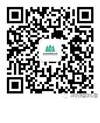-

Finding Roots in Charming Suizhou
Lieshan Mountain sits green and towering over Suizhou while the Jiangshui River rolls and tumbles ahead on this vast land.2021-10-15
-

Shennong's Herbal Classic
Shennong's Herbal Classic, also called Bencaojing or Benjing, is one of China's four classic medicine works. Being the earliest work on Chinese medicine, it was said to be written by Shennong, passed down orally through the generations, and finally compiled into a book in the Eastern Han Dynasty. The book contains medical practices and achievements summarized by a great many medical scientists in the Qin and Han Dynasties.2021-10-11
-

"Tasting a Hundred Herbs"
Emperor Yan, or Shennong, is said to be the father of traditional Chinese medicine (TCM) .According to Sima Qian's Historical Records: the Three Sovereings, Shennong tasted "one hundred" (or "very many" ) herbs and then taught people how to use herbal medicines in their daily life. He later became the God of Medicine and is also regarded as the first pharmacist in China.2021-10-11
-

The Origin of Shennongjia
The name Shennongjia is closely related to Shennong (also known as Yandi or Emperor Yan). In ancient times, in order to try and collect medical herbs as much as possible to benefit the people, Shennong led locals to climb up into the mountains. These mountains were so precipitous and forest-blanketed that Shennong believed there would be magic herbs hidden in them. He first taught them to build houses in an attempt to avoid dangers and disasters, and then instructed them to build a wood ladder with which they could ascend to the mountain tops. Shennong finally gathered 365 kinds of good herbs, which were then compiled into the great work of Chinese medicine, Shennong's Herbal Classic. To inform the Heavenly God of what he did in the secular world, Shennong constructed a wood altar from where he flew to the heaven on a crane's back. Then the mountain was named after Shennong in honor of his deeds and feats.2021-10-11
Copyright Shennongjia National Park
Address:36 Chulin Road, Muyu Town, Shennongjia Forestry District, Hubei Province 鄂ICP备18005077号-3
Address:36 Chulin Road, Muyu Town, Shennongjia Forestry District, Hubei Province 鄂ICP备18005077号-3
Email:2673990569@qq.com
Phone:0719-3453368
Phone:0719-3453368


TOP

